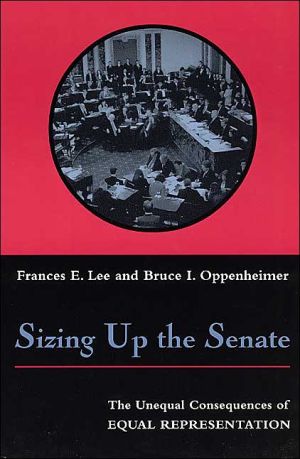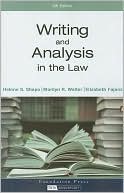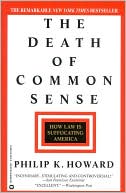Sizing up the Senate; The Unequal Consequences of Equal Representation
We take it for granted that every state has two representatives in the United States Senate. Apply the "one person, one vote" standard, however, and the Senate is the most malapportioned legislature in the democratic world.\ But does it matter that California's 32 million people have the same number of Senate votes as Wyoming's 480,000? Frances Lee and Bruce Oppenheimer systematically show that the Senate's unique apportionment scheme profoundly shapes legislation and representation. The size...
Search in google:
Responding to the U.S. Senate's system of representation where, for example, California's 32 million and Wyoming's 480,000 person populations are both represented by two senators, political science professors Lee (Case Western Reserve U.) and Oppenheimer (Vanderbilt U.) show that Senatorial representation affects virtually every important aspect of legislation and representation, including the senator-voter relationship, election fund-raising, strategic behavior in the Senate, and policy decisions. This study ultimately shows that residents and senators from small states benefit more than the same from larger states, making the Senate's system of representation undemocratic, especially in terms of the modern welfare state. Annotation c. Book News, Inc., Portland, OR American Prospect - Daniel Lazare Sizing up the Senate is remarkable not so much for what it says as for the fact that is says anything about this aspect of the Senate at all.
Preface1Introduction12Senate Apportionment in Theoretical and Historical Perspective163The Representational Experience444Electoral Competitiveness, Campaign Fund-Raising, and Partisan Advantage835Senate Strategies1236The Small-State Advantage in the Distribution of Federal Dollars1587Designing Policy: How the Senate Makes Small States Winners1868The Undemocratic Senate?223Appendixes235AThe Schubert-Press Measure of Legislative Malapportionment237BSenators' Mentions on National Nightly News Broadcasts, 103d and 104th Congresses239CKey Votes Included in the Analysis of Hold-Out Behavior in Chapter 5242DPrograms Studied in Chapter 7246EData on the Sample of Formula Grants-in-Aid248FHouse-Senate Conflict over the Programs Sampled252Notes255References279Index297
\ Daniel LazareSizing up the Senate is remarkable not so much for what it says as for the fact that is says anything about this aspect of the Senate at all.\ —American Prospect\ \








